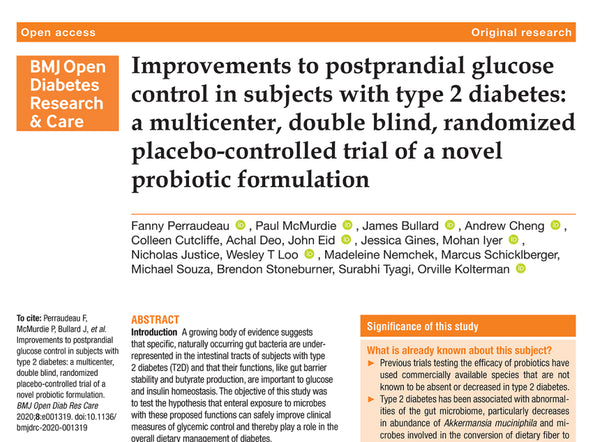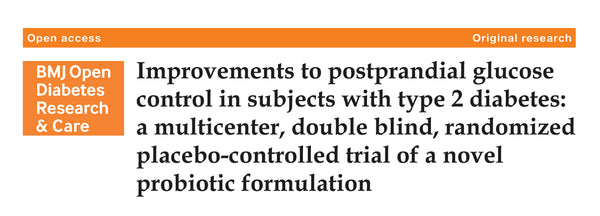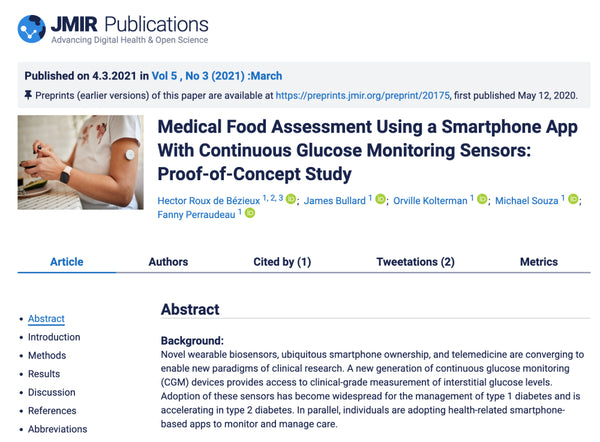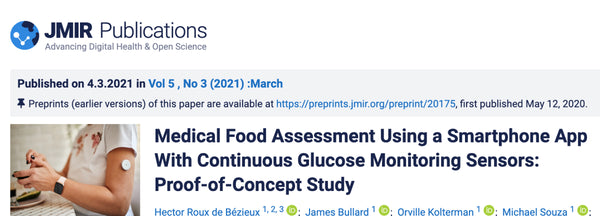PRO-PLATINUM: A Randomized, Double-Blind, Placebo-Controlled Study to Investigate the Efficacy of a Probiotic Intervention on the Gut and Vaginal Microbiome of Ovarian Cancer Patients Undergoing Treatment with Platinum Chemotherapy
Duration:6 chemotherapy cycles (about 6 months)
Eligibility:Ovarian cancer patients undergoing chemotherapy
Conducted by:The Ohio State University Wexner Medical Center
Principal Investigator:Laura Chambers, DO
Design:Double-blind, placebo-controlled study
Date of completion:Estimated 2026
The study:This study investigates the efficacy of a probiotic intervention in altering the gut microbiome of 124 women with advanced (stage II, III or IV) or recurrent platinum-sensitive ovarian cancer who are receiving platinum-based chemotherapy (cisplatin or carboplatin-containing regimens).
Goal:To evaluate changes in gut microbiome composition in ovarian cancer patients randomized to a probiotic intervention versus placebo during platinum chemotherapy.
Pendulum Metabolic Daily
Fecal Microbiota Transplantation for Auto-Brewery Syndrome
Eligibility:Adults with diagnosis of Auto-Brewery Syndrome (ABS) and documented ABS symptoms for at least one year, including supervised ethanol testing or a positive glucose challenge test in a supervised setting.
Conducted by:Massachusetts General Hospital
Principal Investigator:Elizabeth L. Hohmann, MD
Estimated enrollment:8 adults
Design:Open-label pilot study
Date of completion:Estimated 2026
The study:This Phase 1 clinical trial, funded by the National Institute of Health (NIH), will explore the safety and tolerability of Fecal Microbiota Transplantation (FMT) in 8 patients with ABS.
Goal:The goal of this study is to assess the safety and feasibility of antibiotic “clean out” pretreatment, microbial restoration via capsule FMT, and daily administration of potato starch and Pendulum Metabolic Daily for 9 months to manage Auto-Brewery Syndrome. Additionally, the goal will be to understand how the treatment affects breathalyzer blood alcohol levels and whether the gut bacteria in patients with ABS can durably be impacted.
Pendulum Glucose Control
Phase 2 Trial of 5-Strain Probiotic Formulation in Hormone Receptor-Positive Breast Cancer Receiving Aromatase Inhibitor to Prevent Bone Loss
Duration:18 months (including baseline, intervention, and follow-up)
Eligibility:Women with early-stage hormone receptor-positive breast cancer initiating aromatase inhibitor therapy
Conducted by:Mayo Clinic in Florida
Estimated enrollment:30 women.
Cohort 1: 20 Postmenopausal women
& Cohort 2: 10 Premenopausal or perimenopausal women on ovarian function suppression
Design:Phase II, open-label, interventional study
Date of completion:Estimated 2026
The study:This investigator-initiated clinical trial evaluates the effects of Pendulum Glucose Control in preventing bone loss among women with early-stage hormone receptor-positive breast cancer starting aromatase inhibitor therapy. Aromatase inhibitors are commonly used in breast cancer treatment, but are known to adversely affect bone health, body weight, blood glucose levels, and waist circumference.
Participants will receive Pendulum Glucose Control for 12 months, beginning three months after initiating aromatase inhibitor therapy. Assessments will include blood samples, bone mineral density (BMD) testing, and patient-reported outcomes. Follow-up will continue for 3 months after treatment concludes.
Goal:To assess the efficacy of Pendulum Glucose Control in mitigating aromatase inhibitor-associated bone loss, as measured by changes in C-terminal telopeptide of type 1 collagen (CTx) levels and bone mineral density. Secondary goals include evaluating safety, metabolic biomarkers, changes in body weight and waist circumference, cytokine profiles, gut microbiome associations, and aromatase inhibitor-related musculoskeletal symptoms.
A Two-Phase Study on the Safety and Tolerance of a Novel Probiotic in Healthy Adults: Open-Label and Double-Blind, Placebo-Controlled Study
Eligibility:Healthy adults, aged between 18-65 years old
Status:Active, Fully Enrolled
Conducted by:Pendulum Therapeutics
Estimated enrollment:Phase 1: 30 people | Phase 2: 60 people
Design:Phase 1: Open-Label Study | Phase 2: Randomised Double-Blind, Placebo-Controlled Study
Date of completion:Estimated 2025
The study:Pendulum Therapeutics is conducting a Two-Phase Study on the Safety and Tolerance of a Pendulum Probiotic. The first phase will look at two different doses of the probiotic and it’s impact on food cravings and GLP-1 plasma levels. Results from the open-label phase one study will guide dose information for the Phase Two double blinded, placebo controlled study.
Goal:Evaluate the impacts of daily consumption of Pendulum Probiotic on measures of food cravings and plasma GLP-1 levels.
Supplementation with a next-generation synbiotic in individuals who are overweight or with obesity: a triple-blinded, randomized, controlled clinical trial
Eligibility:Adults ages 18-50, BMI: 25-40 without a diabetes diagnosis
Conducted by:Texas Christian University
Estimated enrollment:60 participants
Design:Triple-blinded, randomized, placebo-controlled
Date of completion:Estimated April 2025
The study:Texas Christian University is recruiting participants ages 18-50 that have a BMI between 25-40 and do not have diabetes diagnosis to join a 3-month study of Pendulum Probiotic and measures of body composition, metabolic health, mood and eating behavior.
Goal:Evaluate impacts of daily consumption of Pendulum Glucose Control on measures of body composition, metabolic health, mood, and food behavior.
A Randomized, Double-Blind, Placebo-Controlled Study of Probiotics As Adjuvant Therapy for Bipolar Depression: A Proof-of-Concept Trial
Eligibility:Adults with a medical diagnosis of bipolar disease (type I or II) receiving approved treatments for bipolar depression for at least 4 weeks
Conducted by:University of São Paulo, Brazil (FMSUP)
Estimated enrollment:84 participants
Design:Randomized, double-blind, placebo-controlled trial
Date of completion:January 2025
The study:University of São Paulo Bipolar Research Program is recruiting adults with bipolar (type I & II) presenting with subclinical depressive symptoms or a major depressive episode to participate in an outpatient randomized, double-blind, placebo-controlled trial that will last 12 weeks.
Goal:In a proof-of-concept study, evaluate the antidepressant efficacy of adjunctive administration of probiotics in participants with bipolar depression and evaluate potential inflammatory and metabolic markers associated with response to treatment.
Akkermanisa and akkermansia 500 pro
Detection of Akkermansia muciniphila utilizing serial longitudinal samples with the BiomeSense GutLabTM
Eligibility:Adults, ages 18-75, and in general good health,
Conducted by:Pendulum Therapeutics, BiomeSense
Estimated enrollment:10 participants + household controls
Design:Open-label
Date of completion:November 2024
The study:Pendulum Therapeutics in partnership with BiomeSense are conducting a 4-month study of Pendulum Akkermansia measuring the serial longitudinal detection of the probiotic strain using BiomeSense GutLabTM
Goal:Evaluate serial longitudinal detection of Akkermansia and Akkermansia 500 PRO in stool samples of healthy individuals over an 8-week supplementation period.
OsteoPreP Study: Evaluating how Pendulum probiotics can support bone health in early postmenopausal women
Eligibility:Postmenopausal women, 40-65 years
Conducted by:Australian Catholic University, Pendulum Therapeutics
Estimated enrollment:160 participants
Design:Double-blinded, randomized, placebo controlled
Date of completion:Estimated May 2025
The study:Studies indicate a potential link between the gut microbiome and bone health. Australian Catholic University is recruiting female participants within 1 to 4 years of their final menses to join this 12-month study of Pendulum Probiotic and bone health.
Goal:To measure the impacts of long-term probiotic supplementation in early postmenopausal women on bone, muscle and metabolic health.
PENDULUM GLUCOSE CONTROL
Evaluating the safety and metabolic effects of Pendulum probiotics on glucose control associated with Type 2 diabetes
Eligibility:Type 2 diabetes, metformin, 18-75 years
Conducted by:Pendulum Therapeutics
Estimated enrollment:76 participants
Design:Double-blinded, randomized, placebo controlled
Date of completion:September 2018
The study:12-week double-blind, randomized placebo-controlled, proof of concept study, evaluating the safety and metabolic effects of Pendulum probiotics in the overall dietary management of Type 2 diabetes.
Goal:To evaluate the safety and metabolic effects of Pendulum probiotics on glucose control associated with Type 2 diabetes.
Results:Study participants that were administered Pendulum Glucose Control had statistically and clinically significant improvements. In individuals with Type 2 diabetes on Metformin, A1c levels were reduced by 0.6% and postprandial glucose spikes (Area Under the Curve or AUC) were reduced by 33%, as compared to placebo. Pendulum Glucose Control was safe and well-tolerated by study participants.
PENDULUM GLUCOSE CONTROL
Proof of concept study, evaluating Pendulum probiotics use in conjunction with continuous glucose monitoring smartphone app measurements
Conducted by:Pendulum Therapeutics
Estimated enrollment:6 participants
Design:Double-blinded, randomized, placebo controlled, cross-over proof of concept study
Date of completion:June 2018
The study:Self-administered meal-tolerance tests conducted to assess the impact of Pendulum Glucose Control on glucose levels through continuous glucose monitoring smart phone app measurements.
Goal:Proof-of-concept study to investigate the potential of collecting robust, real-time clinical study measures of glucose levels without clinic visits.
Results:Participants reported general satisfaction with sensor management, Pendulum Glucose Control, and the smartphone app. Despite a lack of sufficient power to achieve statistical significance, meaningful changes in the postprandial glucose response in real-world settings were detected, meriting larger studies in the future.















